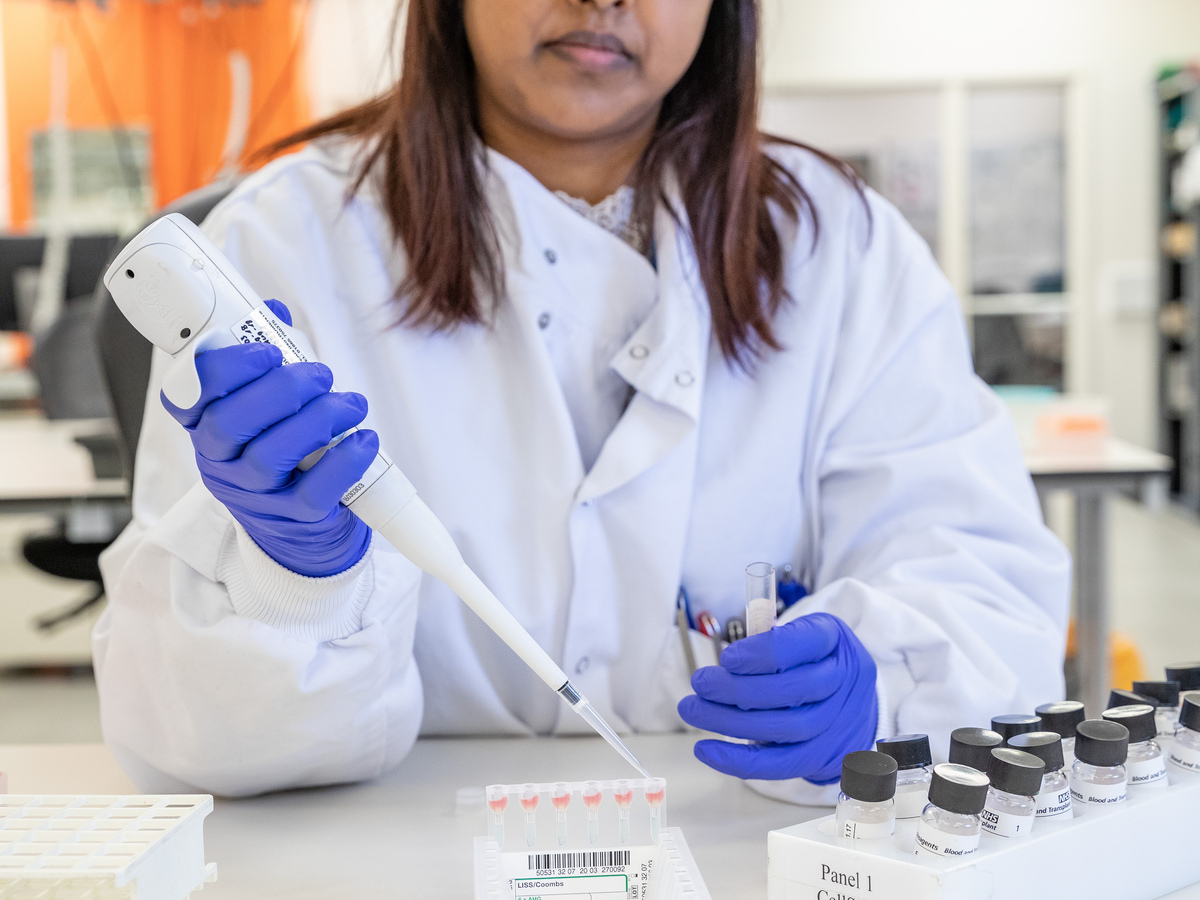NIHR BTRU in Donor Health and Behaviour
Partnered with the University of Cambridge, working in collaboration with the Universities of Nottingham, Oxford, and Queensland and the Australian Red Cross Lifeblood.
Donated blood is a crucial resource for healthcare systems, enabling blood transfusions that save millions of lives every year around the world. But the evidence needed to improve the safety and efficiency of blood donation is weak and underdeveloped, risking harm and waste.
Working with blood donors and international blood services, the BTRU will conduct research to address major challenges identified by NHS Blood and Transplant (NHSBT).
 These challenges include finding ways to encourage a more ethnically diverse range of people to donate blood, developing new methods for recruiting and retaining donors, promoting safe and effective donation practices and identifying risks of adverse health effects of blood donation.
These challenges include finding ways to encourage a more ethnically diverse range of people to donate blood, developing new methods for recruiting and retaining donors, promoting safe and effective donation practices and identifying risks of adverse health effects of blood donation.
The unit is underpinned by several blood donor studies (INTERVAL, COMPARE, STRIDES) and the Blood Donors Studies BioResource.
The unit will also train researchers and PhD students, support Patient and Public Involvement and Engagement activities and ensure that research findings are translated into benefits for donors and NHSBT.
Examples of the work involved include:
Aligning the blood donor base
Aligning the blood donor base to better match demand for transfusions, particularly for diseases affecting ethnic minorities (e.g. sickle cell disease).
Optimising the donor base
Exploiting modern tools in computing and medicine to optimise the donor base and improve planning.
Donation safety
Promoting safe and effective donation practices.
Further information
The Director of this BTRU is Professor Emanuele Di Angelantonio of the University of Cambridge and the NHSBT Lead is Consultant Haematologist Naim Akhtar.
For more details, contact research.office@nhsbt.nhs.uk
